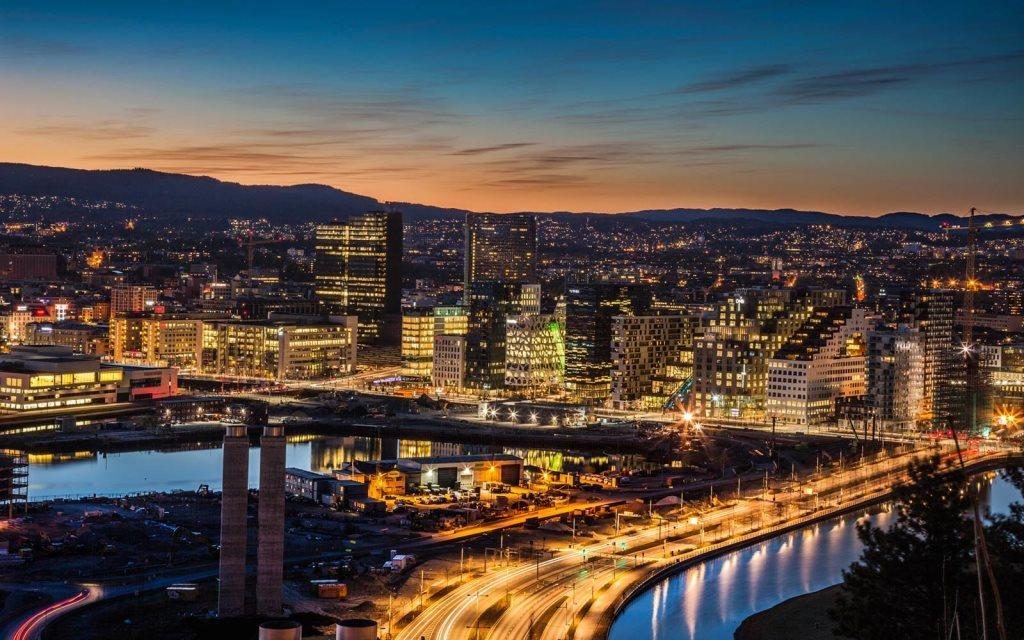Norway is arguably one of the most beautiful countries on earth. It’s famous for its natural attractions like Fjords, mountains and midnight sun, but it’s also well known for a vibrant cultural life. Norwegian cities are cosmopolitan and full of stunning Scandinavian architecture.

Known for its natural beauty, Norway also has a deep history and rich culture. The public educational system in Norway is one of the best and the most popular in Europe. Thousands of foreign students come to The Kingdom of Norway every year not just to gain a degree, but also to get quality knowledge and practice received skills during the studying process.
It’s a welcoming country with the population of more than 5 million citizens which is ready to be explored by new learners and offers high educational standards for their convenience.
Some of remarkable facts about Norway-
- Norway has the 16th-most Nobel laureates in the world (13 Nobel laureates). The top 10 Nobel laureates by country are: United States, United Kingdom, Germany, France, Sweden, Japan, Russia, Switzerland, Canada, and Austria.
- Norwegian universities and state university colleges as a rule do not charge tuition fees for international students.
- 4/500 top University in the world.
- Norwegian Roald Amundsen was the first person to reach the South Pole in the Antarctic.
- Norway has topped the United Nation’s Human Development Index nine out of 11 times from 2001 to 2011.
- Hornindalsvatnet in Norway is Europe’s deepest lake. It reaches a maximum depth of 514m (1,686ft).
- Norway is the birthplace of skiing, predating the sport in Switzerland and Austria. The word ‘ski’ is a Norse word, skīth, meaning ‘piece of wood.’
- Norway is suspected to have the world’s largest sovereign wealth fund, estimated to be worth $1 trillion by 2020. It is the world’s seventh largest oil exporter and has resisted the temptation to splurge its fortune, choosing instead to deposit the excess wealth into its oil fund.
- To encourage Norwegian men to take care of their children, a 10-week paternity leave quota is reserved for them. As such, in Norway, 90% of fathers take at least 12 weeks’ paternity leave, known as pappapermisjon.
- The Nobel Peace Prize has been awarded in Oslo annually since 1901. It is one of the five Nobel Prizes, the others awarded in recognition of academic successes in Chemistry, Physics, Medicine and Literature.
- Around 98-99% of Norway’s electricity comes from hydroelectric power stations. In 1991, it was one of the first countries to adopt a carbon tax in an attempt to slow global warming.
- At 25,148km (15,626mi) Norway’s coastline is enormous. If you include its islands it becomes an incredible 58,133km (36,122mi). It is the longest coastline in Europe (excluding Russia) and the eighth longest in the world.
- Norway is home to the prison island of Bastoey, an open prison where inmates are free to wander woodland, fields and beaches.
- The Lærdal Tunnel in Norway is the longest road tunnel in the world at 24.5km (15.2mi). The tunnel takes 20 minutes to drive and uses blue and yellow lighting to replicate sunrise to keep drivers calm.
- The Sami people have traditionally inhabited the Arcticregion of Norway. The Sami are an indigenous people who historically were nomadic reindeer herders.
- Vinnufossen in Norway is Europe’s highest waterfall at 860m (2,822ft) and the world’s sixth tallest.
It is forbidden to die in the Arctic town of Longyearbyen in Norway’s Svalbard Islands. The town’s small graveyard stopped accepting bodies 70 years ago after it was discovered that they were failing to decompose.
